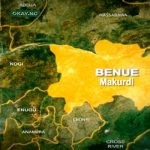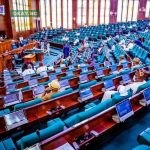Senator Rabiu Musa Kwankwaso, the New Nigeria People’s Party (NNPP) presidential candidate in the last general elections, has refuted claims that he reached an agreement with President Bola Tinubu regarding the outcome of the Supreme Court verdict on the Kano State governorship election.
The Supreme Court recently affirmed the NNPP’s Abba Kabir Yusuf as the duly elected governor of Kano after a series of litigations. Responding to allegations of a pre-existing agreement with Tinubu before the judgment, Kwankwaso clarified his stance in an interview with BBC Hausa.
Kwankwaso stated, “What happened at the Supreme Court is a lesson for all of us. I know that I mean well for everyone. Throughout the period, I have not done anything to anyone. And anybody would reap what he sows. To the best of my knowledge, I have not reached an agreement with anybody.”
He went on to recount his political history with Tinubu, emphasizing their shared involvement in the formation of the APC. Kwankwaso highlighted that despite being contemporaries in politics, no premeditated agreements were made regarding the Supreme Court verdict.
Addressing the issue of advising the newly affirmed governor, Kabir Yusuf, Kwankwaso clarified his role, stating, “Kabir Yusuf is the governor. We can only advise. Even if he were a biological son, I can’t rule over him. I have given him pieces of advice even before the government came in. There are thousands of people like me. I can’t do it alone.”
The senator emphasized the need for those in positions of authority to be allowed to prove their worth, acknowledging that success or failure lies with the leader. Kwankwaso acknowledged errors in previous judgments but commended the Supreme Court for rectifying them.
He concluded, “If it were in other climes, those who delivered the judgments in the lower courts would quit their jobs.” The remarks from Kwankwaso shed light on his stance following the Supreme Court verdict, dispelling notions of a predetermined agreement and emphasizing the importance of allowing elected officials to govern and be judged on their merits.









